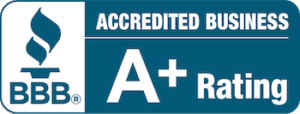What is Foreclosure?
When a homeowner can’t pay their full mortgage payment, foreclosure happens. In such cases pre foreclosure, the lender is entitled to repossess the property and auction it in order to recoup the unpaid debt.
Foreclosure has many stages and it may be different from one state to another or from one type to another. Homeowners who are in a financial crisis must be conversant with foreclosure because it can have severe effects on their credit history, rating and future home ownership.
Definition and Meaning
In real estate, foreclosure is a procedure for the reclamation of property by the lender from a borrower who is unable to keep up with payments on a loan. Through this procedure, a lender can retrieve loan balance due from a borrower who had already stopped making repayment.
The event mostly takes place in public by putting most of one’s belongings in an available market where everyone is free to bid (auction), this offers payment for what rests outstanding regarding mortgages. Where this money does not clear such mortgages or related charges, then it gets back to the defaulter.
Types of Foreclosure

There are multiple foreclosure types each with differing processes and consequences for the borrower. The most usual ones are judicial foreclosure and nonjudicial foreclosure.
Understanding these types of foreclosure is vital since they adhere to different legal paths and time frames. Therefore, it’s worth knowing this in case one lands into these kinds of scenarios or requires some guidance either on laws affecting foreclosures or financial management.
Judicial Foreclosure
When judicial foreclosure happens, it means that the lender sues the borrower who defaulted on their loan request. Such a foreclosure occurs through a non judicial foreclosure process, assuring proper legal monitoring and security for all participants.
In a judicial or foreclosure auction, the decision of the court is made in favor of lenders, and the mortgagee is granted permission to auction the property. Despite the fact that it takes much time and money to auction through this legal process, it is the only way to sort unpaid debts out the legal way.
Nonjudicial Foreclosure (Power of Sale)
Power of sale foreclosure, alternatively referred to as nonjudicial foreclosure, does not go through the court system. In this case, a trustee or lender executes it, pursuant to terms provided for in a mortgage.
This form of foreclosure is often quicker and cheaper than judicial foreclosure since it does not involve courts at all unless otherwise stipulated by law. It enables the lender to dispose of the asset without necessarily taking any legal action.
The Foreclosure Process

A homeowner who misses any payment on his mortgage starts a foreclosure which usually results in several forms of notices together with legal actions filed by those who lent them money so as to retrieve what’s owed or owe money.
The process is made up of numerous steps: delinquency leading up to a foreclosure sale, right of reinstatement pre-sale and right of redemption post-sale. Each phase has its particular rules and timelines that should be complied with by the homeowner.
Missed Mortgage Payments
It is just known in law as a loan default or not repaying the money lent. But at the moment one starts postponing dates of loan payment or even does not completely pay up the loan current amount, he or she is given a warning that he or she might be taken to court for breaching agreements made with such a lender.
Slipping behind on repayments could soon lead to collective financial difficulties. In this kind of a fix, house owners must get in touch with their financiers without delay for possible resolutions to this dilemma.
Notice of Default

A default notification is a formal letter from the lender to the court ordering their debtor stating that they have ended payment of that loan for too long. This type of information is what starts the foreclosure process.
Although receiving such a note makes one jittery, it equally gets them moving. By the time you get such letters, it is just before the court appearance which will render you homeless or leave you with nothing but regret.
Pre-foreclosure
Pre-foreclosure is the period that occurs immediately after the lender files a notice of default and before the property is auctioned off to someone else. The homeowner whose mortgage contract is still in pre-foreclosure has an opportunity to correct things by paying the missed amounts or discussing with the lender.
In foreclosure debtors have the option of modifying loans, engaging in short selling procedures or even abandoning properties to lenders instead of getting estranged during auctions. This act may aver the property from foreclosure proceeding or to public auction, therefore stopping foreclosure.
Foreclosure Timeline

In most cases, the period taken to foreclose a home varies depending on specific jurisdictions laws and the manner in which it happens. The time it takes can easily take a period of several months to over one year from when the initial payment was first missed payment, to when the foreclosed property changes ownership.
Understanding how long foreclosures take is very important for homeowners because this gives them an outline of why foreclosure appears when they should act and also for assistance when necessary. However early action may prevent it from advancing into advanced stages.
Role of the Mortgage Lender
The foreclosure process is facilitated by the mortgage lender. It is their duty to avoid foreclosure and to get back the money given out as a loan legally.
They must notify the borrower and follow the guidelines. Some of them may as well provide mortgage relief options that can be pursued by the borrower to avoid the foreclosure.
Responsibilities and Actions

Lenders, during foreclosure duties, have the responsibilities of giving notices, holding auctions and following state laws. They should make sure that they satisfy all the requirements of strict foreclosure and that are lawful as it goes on.
Borrowers on the other hand are expected to respond to notices and look for help. The comprehension of these positions assists both sides get over through the foreclosure easily.
Avoiding Foreclosure
Contacting the lender and intervention is crucial to avert foreclosure. Home-owners have to be intentional about paying monthly mortgages in a timely manner and look for ways through which they can save their homes.
These are among the top strategies for keeping your home from being taken by banks due to loan defaults:
Always remember: stopping foreclosure includes:
- immediately contacting your creditor for terms and conditions revision;
- consult a housing adviser;
- consider selling the house cheaply;
- claiming a mortgage loan cancellation.
Early Intervention
Early intervention is crucial in preventing foreclosure. Homeowners can usually find ways to keep their houses by dealing with the first missed payment or mortgage payment, payment notifications and talking with the lender.
If one starts taking measures earlier, they are able to stop things getting worse and start modifying their money-related problems in various other ways. Failing to deal with it might result in more serious outcomes so you should never overlook this matter.
Stopping the Foreclosure Process

To impede foreclosure throws down the gauntlet requiring quick means of action while there are numerous routes for the homeowner to take such as loan modification, repayment schedule, refinancing.
Additional assistance can be gained from hiring a housing counselor or a lawyer or discussing options with housing counselors. This way those who know their work well will guide them through it and advice appropriately.
Consequences of Foreclosure
One of the serious outcomes of foreclosure for homeowners is the loss of their property. This may also lead to the loss of the house as well as lowering the borrower’s credit score for a long period.
Again, through foreclosure, homeowners may incur legal charges or have psychological stress or suffer challenges in getting credit in the subsequent days. Therefore, understanding these consequences is vital for making rational decisions.
Credit Score Impact

Once borrowers face foreclosure, one of the most serious effects involves their credit scores. When foreclosure occurs, borrowers usually end up with scores that are hundreds (or even thousands) of points poorer than before their homes were repossessed. Hence, credit companies might refuse them later loans because they are seen as too risky customers.
These low scores stick around for seven consecutive years preventing individuals from getting any form of credit whether they wanted personal loans, mortgages or even simple credit/ debit cards. Upon realization of this imminent danger of going under, there need be this consideration of what will happen in future on one’s ability to obtain loans or even rental houses, especially if they are among those facing foreclosure orders.
Additional Options and Considerations
Consider that there are some other possibilities for a homeowner whose home is being foreclosed on, these possibilities include modifying their loan, selling their house, and asking for help from the government.
Looking at everything there is to consider and talking to an expert could make a homeowner in such a situation take the right decision. Quick action is essential while all means that may solve the problem are explored.
Deed in Lieu of Foreclosure

Instead of a mortgage agreement allowing a borrower defaults and their property to be closed by the bank involuntarily, a deed in lieu of foreclosure is an agreement where the homeowner voluntarily transfers the property to the lender. It can be less detrimental to the borrower’s credit than a full foreclosure.
This process will mean bargaining with the lender in addition to meeting particular eligibility requirements. However, they may find it more desirable than going through foreclosure despite losing their house in the long run.
REO Foreclosure
Real Estate Owned (REO) foreclosure represents that step where a property formerly in custody of its lender has lately undergone a foreclosure process. In other terms, REO homes are those which have been foreclosed properties that have not been purchased during foreclosure auctions and instead a company that granted a mortgage to buy such property eventually becomes its owner.
Buyers thus can have the privilege of buying reo houses at a lower cost which may be beneficial in some situations for them to afford the cost. At the same time, these properties might need substantial repair works making them unattractive to those who want something ready-to-move-in condition without checking any other factors or considerations while selecting such a place of residence when reading it.
Conclusion
Homeowners who are financially challenged might not comprehend the process of foreclosure. At first sight, it appears bewildering and intricate, however taking urgent measures and obtaining counsel from specialists may significantly contribute to the cause. Homeowners appear to handle such intricate matters in an incredible manner by examining all options open to them, keeping in touch with their lenders, and considering how they would pay back their debts in future. Whenever you find yourself threatened with sail loss, remember that there is someone who cares; ask for aid and think about choices that suit you the most.





























